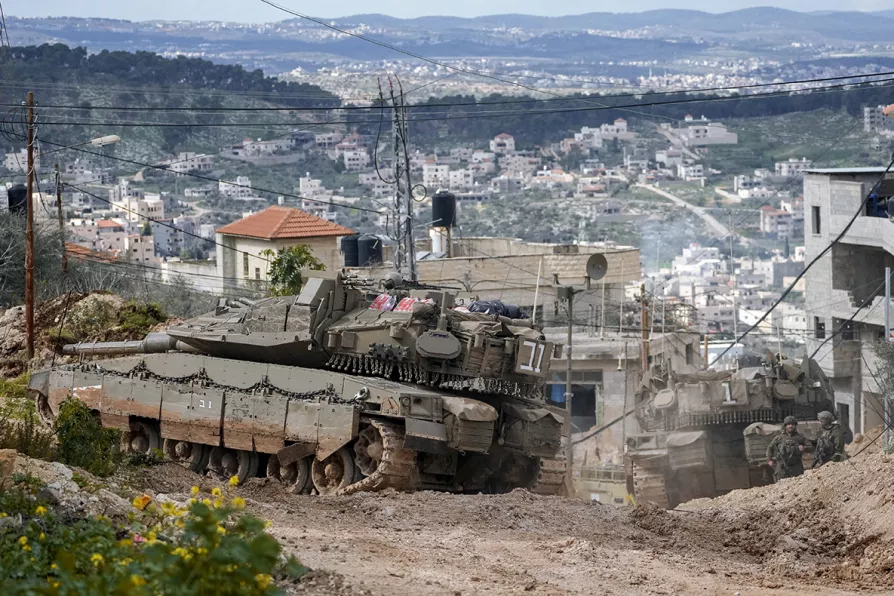Israeli tanks move into the occupied West Bank in ‘dangerous’ escalation

 Israeli tanks are deployed during an ongoing army operation in the West Bank Jenin refugee camp, February 24, 2025
Israeli tanks are deployed during an ongoing army operation in the West Bank Jenin refugee camp, February 24, 2025
GAZA’S ceasefire hangs by a thread as Hamas accused Israeli Prime Minister Benjamin Netanyahu today of “intentionally sabotaging” the deal.
The group said it would not participate in more talks on extending the truce until Israel releases 620 Palestinians it was due to free on Saturday.
Israel escalated its aggression in the occupied West Bank as well, where it deployed tanks on Sunday for the first time in 20 years.
Similar stories

The situation for the peoples of the Middle East is dire – the time has come to build an international coalition to isolate the warmongers for as long as they continue their violent campaign, argues AQEL TAQAZ













